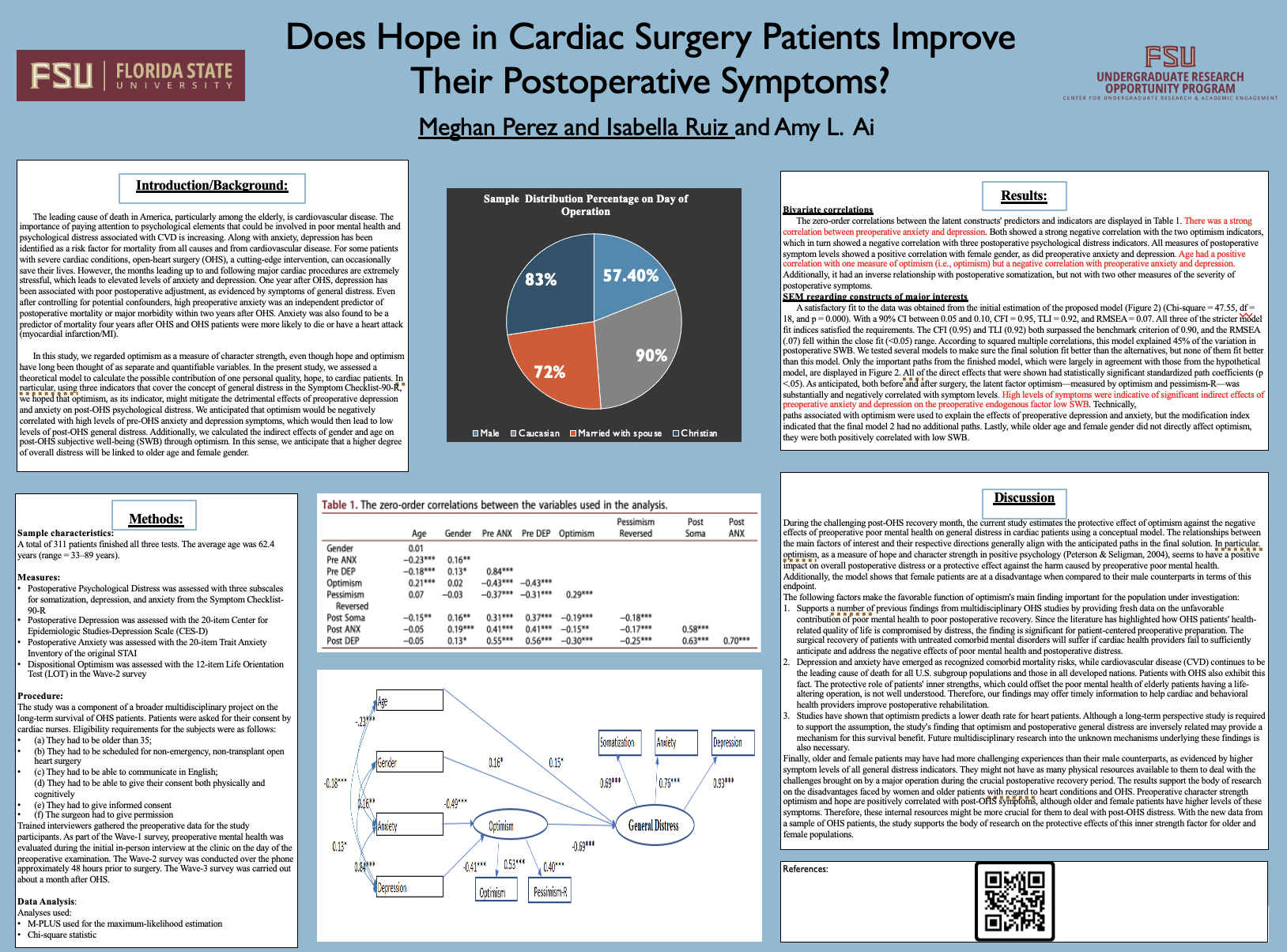Research Symposium
25th annual Undergraduate Research Symposium, April 1, 2025
Meghan Perez Poster Session 2: 10:45 am - 11:45 am/ Poster #127

BIO
Hi I am Meghan Perez and I am from Miami, Florida! I am a sophomore on the pre-med track majoring in Biological Sciences with the intention of becoming a doctor. I am currently working under Dr. Amy Ai on her psychological study on whether hope in cardiac surgery patients improve their postoperative symptoms.
Does Hope in Cardiac Surgery Patients Improve Their Postoperative Symptoms?
Authors: Meghan Perez, Amy AiStudent Major: Biological Science
Mentor: Amy Ai
Mentor's Department: Psychology Mentor's College: Arts and Sciences Co-Presenters: Isabella Ruiz
Abstract
For middle-aged and older patients with heart conditions, anxiety and depression are significant comorbid mortality risks. Open heart surgery (OHS) is a life-changing procedure that can induce psychological distress, potentially hindering recovery in the postoperative period. Numerous studies highlight the positive health effects of optimism, a psychological trait associated with hope and resilience. Optimism has been linked to a lower mortality rate from cardiovascular disease, the leading cause of death in the United States. However, limited research has examined whether optimism mitigates the harmful impact of preoperative anxiety and depression on overall psychological distress following OHS. This multidisciplinary clinical study utilized a three-wave survey to evaluate a hypothetical model of these relationships in 311 U.S. patients before and one month after undergoing OHS. Structural equation modeling (SEM) was used to predict postoperative psychological distress. Optimism was measured using two subscales of the Life Orientation Test (LOT), while general psychological distress was assessed through the SCL-90 subscales for somatization, depression, and anxiety symptoms. The final model demonstrated a strong fit. Findings revealed that preoperative depression and anxiety had a more substantial negative effect on postoperative distress than optimism had in alleviating it. Additionally, female gender and older age were directly correlated with higher levels of postoperative distress. These results confirm the protective role of optimism in reducing the adverse psychological effects of poor mental health on heart patients. Health professionals should focus on strengthening patients’ inner resilience to promote better mental health outcomes during recovery.
Keywords: Depression, Optimism, Cardiac Patients

